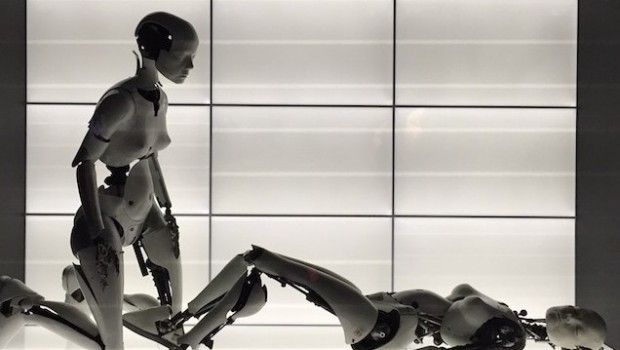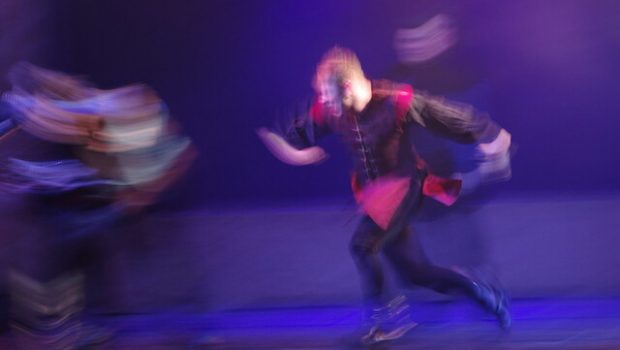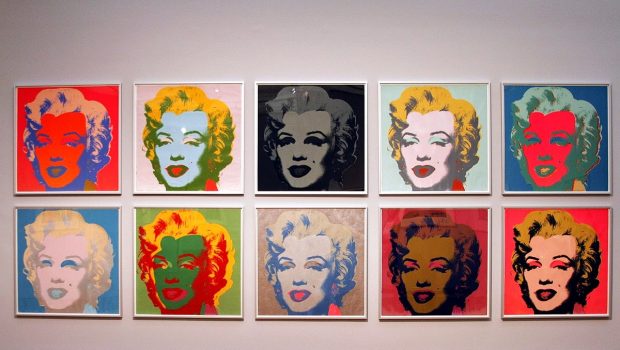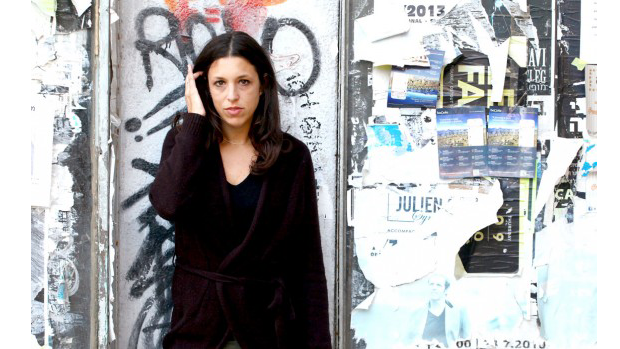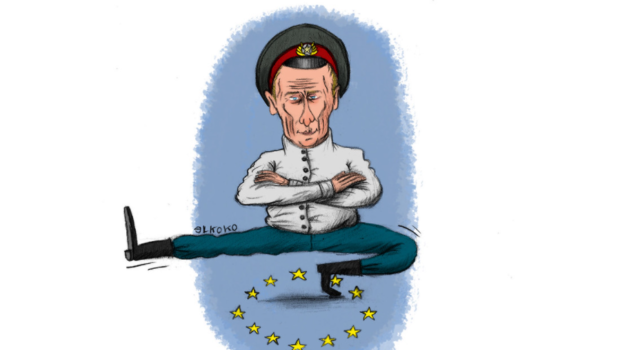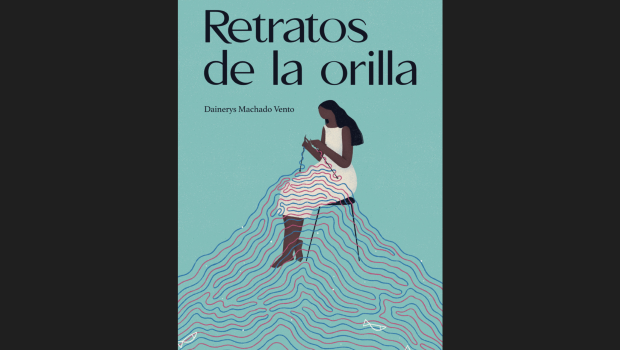The Names of Evil: Knowledge and Sophisms in the Face of Unjust Power
Armando Chaguaceda
In Cuba, in little more than six decades, institutional and legal innovation, the periodic renewal of elites and authentic popular participation – autonomous and active, not mobilized from power – have been relegated by a model under the iron political control of a Leninist type party.
When a society is corrupted, the first thing that becomes gangrene is the language (…)
Criticism of society, therefore, begins with grammar and with the restoration of meanings
Octavio Paz, Posdata, Siglo XXI Editores, México, 1970
The discussion about how to call the current politics in Cuba – the regime, the State, the thing – leads the academic sphere to reach social media. The political becomes a personal issue, beyond official rituals, for many people affected by it. It is therefore a debate whose relevance goes beyond the academy. Debating, as it is being discussed now, the nature and denomination of the Cuban regime makes perfect sense. It is about clarifying the content and meaning of the words that identify a power that is exercised, unrestricted, over the lives of millions of people. When that society – or at least a part of it – begins to extirpate moral and intellectual gangrene from its body and spirit, it is when the clarification of words becomes urgent and necessary.
Concepts are words that capture essential features of a part of reality. They have an origin —historical, linguistic, etymological— that marks them genetically. At the same time, they tend to adapt to the passage of time; maintaining a little mutable essence – since if they vary they would lose the ability to refer to the phenomenon to be named – and evolving in the ability to account for the change of things themselves. There is a substantive, permanent core in each concept; accompanied by subordinate, changing elements. The concept democracy, for example, comes from ancient Greece and identifies a type of political regime, a form of government in which the population ceases to be a mass of subjects to become citizens by participating in the affairs of government, in public affairs. In a democracy, citizens, together with the politicians they elect, write their laws, make their institutions, and define who exercises power and how it is exercised.
Now, in large mass societies under the rule of a nation state, democracy has a content—social, legal, cultural—different from that of the classical direct assembly democracy of ancient Greece. Forms of community democracy also survive, for example, in certain indigenous peoples. There is even talk today of a monitored democracy, adding mechanisms of civil society control over the institutions – parties, parliaments – of classical representative democracy. As such, different historical moments and social contexts give life to different models of democracy. Models where the essential remains, but the accessory mutates. Because there is an essential quality that defines what is (and what is not) the democratic phenomenon: the unrestricted and autonomous participation of citizens, de jure and de facto, in the affairs of government of the political community.
So, if when we speak of democracy we were only referring to the classical Athenian model, we would incur a conceptual stagnation. Because it is a concept that evokes an ideal —citizen participation and self-government—with contents and references that are transformed when traveling in time and geography. Hence, when using the concepts we must avoid two extremes. The temptation of stagnation, of confusing the necessary preservation of an essential feature of the concept with ossification that prevents it from adapting to changes in time and place. The drive for stretching that blurs the concept itself, making it unrecognizable in its ability to invoke that essential feature that defines it to name a verifiable reality. Stretching that, on issues linked to political issues, is often mixed with – or emanates from – intellectual frivolity, ignorance of public opinion or, worse, the attempt to cover up a negative reality.
Despite this, this discussion does not refer only to conceptual interests or ideological impulses. It also has to do with practical policy imperatives, a need for many people—and not just intellectual elites—to be able to call things for what they really are. To mobilize words, mobilize actions, promote changes in ourselves and in the environment. So when we talk about democracy, dictatorship or similar, it is not only – but also – a debate of aseptic concepts that float in a vacuum. It is a discussion that crosses the existence, in its triple condition of legacy, present experience and possible futures, of millions of people. It is therefore important to review the words at stake, those that are now being used in the debate. Below I will identify the essence of each concept and the ways in which it travels, applying them, in the end, to the Cuban case.
Defining Power
A first concept to review is that of dictatorship. This is basically a form of concentrated, unrestricted, personal power; which has some variable relationship with the law and responds to emergency situations. In its original concept of ancient Rome, it was defined as the mandate given to a person – turned dictator – to resolve the crises of the republic in the face of external threats or civil war. The concept was linked to a limited period of time and a figure charged by explicit mandate of the Senate to resolve the crisis. After that time, at least in theory, the dictatorship ceased and the Senate regained power as the maximum collective representation of the citizenry. This original concept is the one that has been frequently invoked in the intellectual field to point out its inapplicability with reference to the Cuban case.
But it happens that this concept also traveled in time. Oliver Cromwell and Napoleon were spoken of as powerful dictators, capable of founding modern Britain and France. Lenin, taking from Marx, alluded to a dictatorship of the proletariat which would supposedly be a political form superior to bourgeois democracy. Although by its political form, as by its class content, the dictatorship of the proletariat in reality resulted in the dictatorship over the proletariat. Carl Schmitt, the great jurist of Nazism – today venerated by theorists and politicians of left-wing populism – alluded to a commissary dictatorship and a sovereign dictatorship. In the first, which refers to the classical model, a leader is temporarily entrusted for a mandate that must solve a problem; In the second, the dictator transcends any original mandate or limitation and establishes a direct, charismatic relationship with the people. Interestingly, for the Kronjurist of the (Third) Reich, sovereign dictatorship was synonymous with direct, superior, plebiscitary democracy.[i]
The concept has traveled through time, remaining as a designation of regime with exceptional powers – de jure and de facto – and recurrent use of force as a mechanism of political control. As a kind of cell, the word dictatorship maintains a certain basic explanatory core, with a variable cytoplasm of secondary elements that surround it, adapting to the environment. Even in comparative politics, the term continues to be used to, from the rigor of the academy, refer to contemporary non-democratic regimes and not only to the classical formulation.[ii]
But concepts are not only what intellectuals create and believe, but also the ways in which such notions are appropriated and recreated on a social scale. In that sense, it is difficult to forget that in Latin America the word dictatorship has referred to single-person governments and forces of different ideological signs, in the last century. We continue to speak – with full explanatory, political and moral validity – of the dictatorships of Somoza, Videla and Pinochet, without asking too much of Nicaraguans, Argentines or Chileans to read Cicero or Polybius. Closely related to this, also the notion of tyranny – originating in ancient Greece – is used to identify the violent, sneaky and arbitrary usurpation of power by an usurper. The term has had less use in the modern era, but it is still used to refer to the Trujillos, the Batistas and the Stroessners, who ruled their nations with repression, corruption and brutality. Currently it has less presence in political science, but it is still used to indicate cruel rulers and violators of freedoms.[iii]
Authoritarianism is another common term in political science and colloquial language. It refers to a wide range of subjects, institutions and modes of political action.[iv] The political scientist Juan Linz used the term to denote a broad category of non-democratic regime —based on conservative mentality, residual pluralism and limited mobilization— where historical examples such as Francoism and various cases in Europe, Asia, Africa and Latin America fit. As for the concept of totalitarianism, as an extreme, pure category, of high concentration and despotic, ideologized and mobilizing exercise of power, —as other schollars— identifies it in few historical cases, among which appears the Cuban one.[v] However, in its generic and strictly conceptual use, authoritarianism has been questioned, confusing a type of exercise of power – from the family sphere, through the business world, to its macro expression at the state level – with a particular type of contemporary political regime. Adam Przeworski, among other authors, has expressed recent criticism on the subject. [vi]
But if a concept, also with deep roots in the classical world, has the virtue of being simultaneously exact in its classificatory and encompassing dimension to embrace various experiences, it is that of autocracy. Meaning self-government, autocracy refers both to the ancient Greek founders of political philosophy and to modern state theorists. Hans Kelsen, in the thirties of the last century, defined it as one of the two ideal types (as opposed to democracy) of the catalog of current political forms. The current comparative politics has recovered it in the studies on processes of erosion, crisis and suppression of the democracies of the post-Cold War, in the form of debate on autocratization. Seeing the undemocratic not only as a way or arrival station, a moment; but as a process, a series of changes that violate the rule of law, prevent citizen participation and restrict contestation in the public space. [vii]
All these words – dictatorship, tyranny, authoritarianism and autocracy – are, after all, concepts that academia and citizens can use as synonyms in cases such as Cuba. They have in common the quality of referring to the abuse of unrestricted, concentrated powers, located above the law or manipulating it at convenience, where a clique establishes a political order that subdues the plurality of ideas, the diversity of actors and the possible futures of an increasingly complex, unequal and belligerent society. What does not reflect, even approximately, the way of conceiving, organizing and exercising power in Cuba is the notion of democracy. Neither by essence nor by adaptation.
The meaning of things
What is the political meaning, here and now, of this discussion? We said earlier that conceptual stretching is always a risk in academic discussions since it goes hand in hand with the masking of the content, either due to ignorance of the context, the concept or the political task of camouflaging the content of a conflictive reality. When a word is wasted so as not to account for the subjects, institutions and real processes by and through which power is exercised, such contortion tends to make invisible the true nature of reality.
The manipulation with the concept of democracy, normatively victorious throughout the last century, is an example of such a disastrous procedure. In Eastern Europe, Stalin’s officials spoke of people’s democracies protected by Soviet tanks. In Pinochet’s Chile, the military called his dictatorship a protected democracy. In twenty-first-century Russia, Kremlin ideologue Vladislav Surkov called Putin’s autocracy sovereign democracy. In North Korea, totalitarian dystopia, the official discourse speaks of the validity, nothing more and nothing less, of a “People’s and Democratic Republic”.
We must banish the misplaced idea that a community like the Cuban one — chronologically young, materially poor and small, with scarcely five centuries of history and eleven million inhabitants — is so sui generis that its nature is ungraspable for the legacy of two millennia of history and theory of human power. Insisting on Cuba’s supposed exceptionalism – as the late Ceausescu, Chávez, and other autocrats did in their respective countries – is untenable in any worthy academy. The insular reality can be reflected and evaluated by concepts forged and used, since modernity, throughout the world. These are words that encompass thousands of years of intellectual and political reflection.
In Cuba, in little more than six decades, institutional and legal innovation, the periodic renewal of elites and authentic popular participation – autonomous and active, not mobilized from power – have been relegated by a model under the iron political control of a Leninist type party. An order supported by police, military and bureaucratic organs, thar keeps in power a small group of “historical leaders” and, belatedly, some cadres appointed to the successors. There are now several hundreds of citizens imprisoned and prosecuted after 11J for exercising the rights of demonstration and expression. Hundreds of thousands — including skilled youth — have emigrated from the country over the past two years, while disaffection with participating in “elections” without alternatives or reliable arbitrators grows. Disconnection and disgust are increasing in all provinces and age groups given the poor management of the public economy and administration. There are enough testimonies of protagonists, press coverage, reports of international organizations and expert analysis that allow one to evaluate each of the dimensions and performances of the insular political order.
Faced with the increasingly coercive nature of the dominant power, it is not worth taking shortcuts. The invocations to a supposed hybridity of the regime prevailing in Cuba are rhetorical and political games that prevent the valuation and qualification of the status quo, since they dilute the actors and responsibilities and make invisible the nucleus and mechanisms of power. In Cuba there have been neighbors elected as grassroots delegates with no more real power than to raise complaints and lower justifications. In the oil monarchies of the Gulf, and in China, deliberative assemblies have been tried, and certain bodies of popular representation are elected, but real or bureaucratic power is not questioned. The democracy there is always something accessory – technocratic, legitimizing, etc. – that brightens and lubricates the autocratic axes – the emir, the secretary of the Communist Party – that structure the system.
Ignoring, by dogma, duplicity or fraud, the conceptual discussion —classic or contemporary— on power and ignoring, in parallel, its empirical referents in a context to which it is alluded, does not only affect scientific production. It contaminates the culture and language of society and academia affected by this fallacious diagnosis, the source of a false debate. Certainly, in these times of post-truth it is said that opinion prevails over reason, but that does not found, describe or explain the surrounding reality. It is, at best, ignorance and frivolity and at worst, a gross manipulation. Another instrument of unjust power.
Notes
[i] Carl Schmitt: Dictatorship, Polity Press, 2014.
[ii] Scott Mainwaring and Aníbal S. Pérez-Liñán, Democracies and Dictatorships in Latin America: Emergence, Survival, and Fall. Cambridge, Cambridge University Press, 2013; Barbara Geddes; Joseph Wright y Erica Frantz: How Dictatorships Work: Power, Personalization, and Collapse, Cambridge University Press, 2018; Steven Levitsky y Lucan Way: Revolution and Dictatorship: The Violent Origins of Durable Authoritarianism, Princeton University Press, Princeton, 2022.
[iii] José Fernández Santillan: «Tiranía» en Carlos Pereda (ed.) Diccionario de Injusticias, México: Siglo XXI Editores, UNAM, 2022; Timothy Snyder: On Tyranny: Twenty Lessons from the Twentieth Century, Penguin Random House, 2017.
[iv] Cecilia Lesgart y Armando Chaguaceda: «Autoritarismo», en Carlos Pereda (ed.) Op. Cit; Stephen King: The New Authoritarianism in the Middle East and North Africa, Indiana, Indiana University Press, 2009; Steven Levitsky y Lucan Way: Competitive authoritarianism: Hybrid regimes after the Cold War, New York, Cambridge University Press, 2010; Andreas Schedler, The Politics of Uncertainty: Sustaining and Subver- ting Electoral Authoritarianism, Oxford, Oxford University Press, 2013; Milan Svolik: The Politics of Authoritarian Rule, Cambridge, Cambridge University Press, 2012.
[v] Carl Friedrich y Zbigniew Brzezinski: Totalitarian Dictatorship and Autocracy, Harvard University Press, Cambridge, 1965; Juan Linz: Totalitarian and Authoritarian Regimes, Rienner, Boulder, 2000; A. Tucker: The Legacies of Totalitarianism. A Theoretical Framework, Cambridge University Press, Cambridge, 2015.
[vi]Adam Przeworski: «A Conceptual History of Political Regimes: Democracy, Dictatorship, and Authoritarianism», en Wiatr Jerzy (ed.) New Authoritarianism: Challenges to Democracy in the 21st century, Opladen, Verlag Barbara Budrich, 2019, pp. 17-36.
[vii] J. A. Aguilar Rivera: «Autocratizacion», en Carlos Pereda (ed.) Op. Cit.; Andrea Cassani & Luca Tomini: Autocratization in post-Cold War Political Regimes, Palgrave Mc Millan, 2019 y Varieties of Democracy Institute, Democracy Report 2022. Autocratization Changing Nature?, Gothenburg, University of Gothenburg, 2022.
-Foto de Michal Matlon en Unsplash
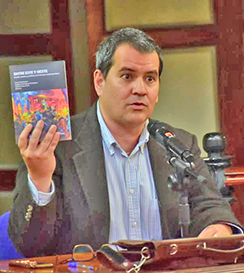 Armando Chaguaceda Noriega. Politólogo e historiador cubano-mexicano especializado en el estudio de los procesos de autocratizacion en Latinoamérica y Rusia. Colaborador experto del Varieties of Democracy Institute (V-Dem ) y de Freedom House. Twitter: @DMando21
Armando Chaguaceda Noriega. Politólogo e historiador cubano-mexicano especializado en el estudio de los procesos de autocratizacion en Latinoamérica y Rusia. Colaborador experto del Varieties of Democracy Institute (V-Dem ) y de Freedom House. Twitter: @DMando21
©Literal Publishing. Queda prohibida la reproducción total o parcial de esta publicación. Toda forma de utilización no autorizada será perseguida con lo establecido en la ley federal del derecho de autor.
Las opiniones expresadas por nuestros colaboradores y columnistas son responsabilidad de sus autores y no reflejan necesariamente los puntos de vista de esta revista ni de sus editores, aunque sí refrendamos y respaldamos su derecho a expresarlas en toda su pluralidad. / Our contributors and columnists are solely responsible for the opinions expressed here, which do not necessarily reflect the point of view of this magazine or its editors. However, we do reaffirm and support their right to voice said opinions with full plurality.
Posted: July 24, 2023 at 10:53 pm



